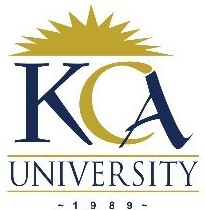
UNIVERSITY EXAMINATIONS: 2017/2018
ORDINARY EXAMINATION FOR THE DIPLOMA IN INFORMATION
TECHNOLOGY AND DIPLOMA IN BUSINESS INFORMATION
TECHNOLOGY
DCU200 INFORMATION LITERACY
DATE: AUGUST, 2018 TIME: 2 HOURS
INSTRUCTION: Answer Question ONE and any other TWO Questions.
QUESTION ONE (30 MARKS)
a) Explain FIVE benefits of information literacy to a student. (5 Marks)
b) Distinguish between references and bibliography. (2 Marks)
c) To effectively search for information in a library, it is important to use the library
catalogue.
Discuss any FIVE functions of a library catalogue. (10 Marks)
d) Outline the bibliographic details of a book. (4 Marks)
e) Explain THREE advantages of using sources provided by the university library.
(6 Marks)
f) Referencing is an important academic practice when writing assignments at the
university. State THREE reasons for referencing your work. (3 Marks)
QUESTION TWO (20 MARKS)
a) Discuss any FIVE characteristics of an information literate individual. (10 Marks)
b) Using peer-reviewed information sources is recommended when writing assignments.
Discuss the criteria used to evaluate the quality of information source. (10 Marks)
QUESTION THREE (20 MARKS)
a) Explain FOUR situations when referencing is required. (4 Marks)
b) Internet is one of the sources of information. Discuss FIVE precautionary measures one
need to take while using sources from the internet. (10 Marks)
c) In searching for information it’s important to know and use Boolean operators. State the
THREE Boolean operators and explain their different uses in information searching.
(6 Marks)
QUESTION FOUR (20 MARKS)
a) Using relevant examples, describe what constitutes primary, secondary and tertiary
sources of information. (10 Marks)
b) Using the APA referencing style, prepare the references for the item below.
Navigating information literacy: Your information society survival toolkit, by Theo
Bothma, Erica Cosijn, Ina Fourie, Cecilia Penzhorn, third edition, 2011, published in
South Africa by Pearson Education. (10 Marks)
QUESTION FIVE (20 MARKS)
a) Define the term plagiarism. (2 Marks)
b) Discuss FIVE ways of avoiding plagiarism when you write academic assignments or
research projects. (10 Marks)
c) Provide the procedure of locating electronic resources in your university library.
(4 Marks)
d) Differentiate between regular and block quotation. (4 Marks)
